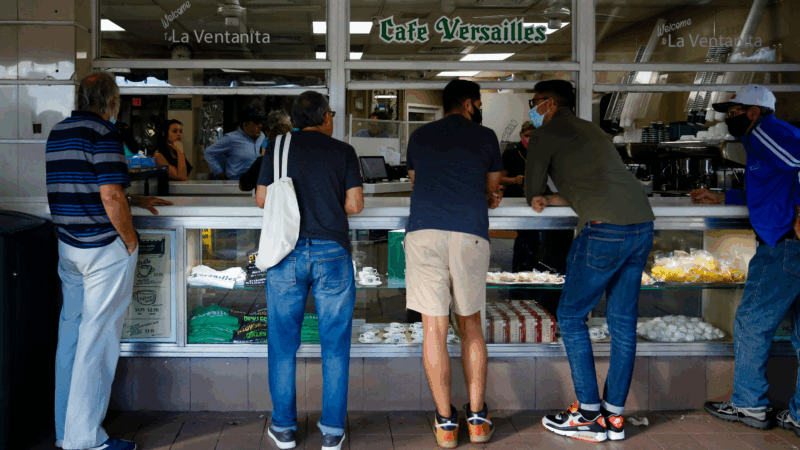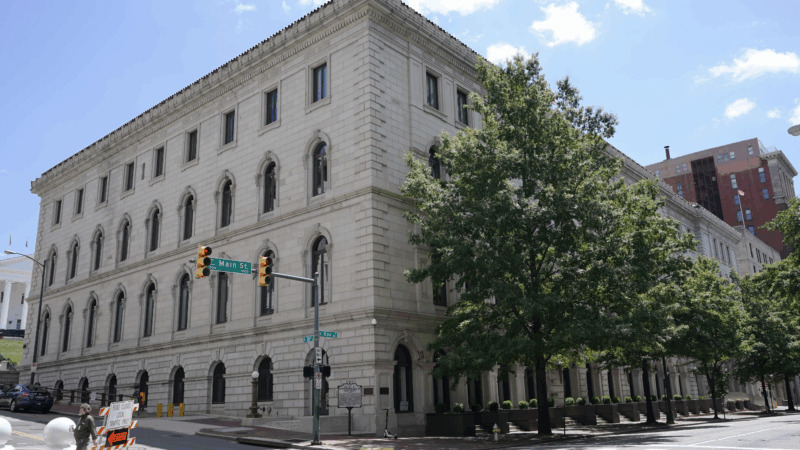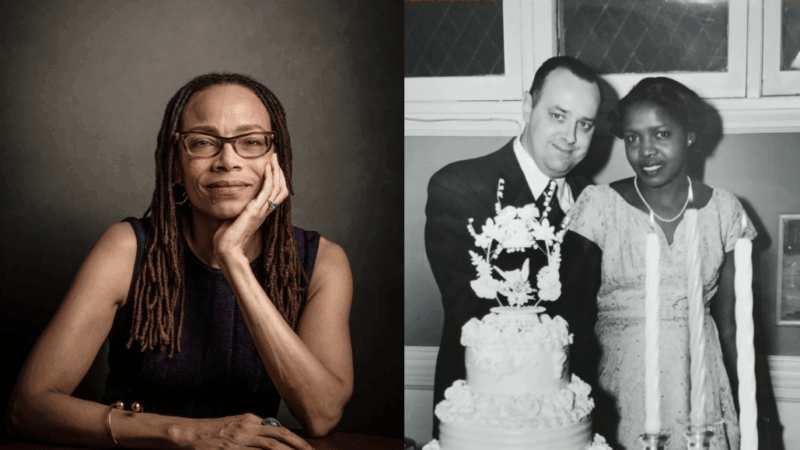In Miami, deportations are raising concerns among Cuban-Americans
In Florida, the growing number of immigrants being deported are raising concerns among some of President Trump’s most loyal voters: Cuban-Americans. Before last year’s election, more than two-thirds of Cuban-Americans in Miami-Dade County told pollsters they supported Trump. But the Trump administration’s recent actions on immigration are drawing criticism from Cuban-Americans and other Hispanics.
At a “ventanita,” a counter-service window at a restaurant in Miami’s Westchester neighborhood, customers gathered this week for Cuban coffee and conversation. Roger Schaefer, a second-generation Cuban-American calls himself “a Trump supporter 100%.” But he’s not comfortable with how the Trump administration is cracking down on people living here without legal status.
“I was on board with deporting any criminal, not so much people who come to work hard—roofers and construction guys. I’m not for deporting people without criminal records,” he said.
In Florida and around the country, Immigration and Customs Enforcement officers are detaining and beginning deportation proceedings against people with no criminal violations, in some cases arresting them at required routine check-ins with immigration authorities.
Those stories, which are being widely covered by Spanish and English-language media, are generating a lot of attention and talk in Miami-Dade County. It’s a place where nearly 7 out or 10 people are Hispanic and more than half of the residents came here from another country.
Jorge Pitta, whose parents came from Honduras and Uruguay, says he’s been following the stories and the debate closely.
“It’s rough because I’m Hispanic myself and I see my people being treated like this,” he says. “I’m in agreement with having to deport massively because a lot of illegals did come through. I just don’t like the way it’s being done.”
Like others at the ventanita, Pitta is critical of the protests in Los Angeles. He believes people are siding with immigrants who entered the country illegally over law enforcement authorities. But he’s not happy with the Trump administration’s approach.
“I voted for the guy because I like him,” he says. “I do think Trump also has his mistakes that he needs to address. Foreign policy is one. The way he’s handled this immigration is not good.”
Abel Delgado, who heads Miami-Dade County’s Democratic Hispanic Caucus, says the Trump administration has shocked the South Florida community by deporting people to countries run by authoritarian regimes.
“We didn’t deport people to Cuba on a regular basis before,” Delgado says. “That has changed. We didn’t think it was wise to send people back to Venezuela. Based on all the changes that President Trump is making, he must think that things are perfectly fine in Cuba and Venezuela.”
The concerns about deportations and policies such as the travel ban imposed on Haiti and the partial ban imposed on Cuba and Venezuela, may be denting Trump’s support among Hispanics in Florida, but many are doubtful it will have a lasting impact.
Ninoska Perez, a prominent Cuban-American talk show host in Miami says many who call into her daily radio show believe the immigration crackdown was overdue.
“I think President Trump has a mandate that was given to him is this election saying that he has to protect the borders. And this is one way to do it,” she says.
In the last week, some prominent Cuban-American elected officials have begun to express concerns about the administration’s actions. On social media, Florida Republican state senator Ileana Garcia posted a series of statements criticizing the Trump administration, singling out White House deputy chief of staff Stephen Miller, the architect of Trump’s immigration policy. Garcia, a long-time Trump supporter who founded Latinas for Trump called the deportations -quote- “unacceptable and inhumane.” She didn’t respond to interview requests.
Republican Congresswoman Maria Elvira Salazar, also from Miami, has expressed similar concerns about the crackdown, saying deportations of Cubans, Venezuelans and Nicaraguans have left her “heartbroken.” She says she and other Cuban-American members of Congress are meeting this week with Homeland Security Secretary Kristi Noem to discuss their concerns about people being deported to these countries.
Federal judge acknowledges ‘abusive workplace’ in court order
The order did not identify the judge in question but two sources familiar with the process told NPR it is U.S. District Judge Lydia Kay Griggsby, a Biden appointee.
Top 5 takeaways from the House immigration oversight hearing
The hearing underscored how deeply divided Republicans and Democrats remain on top-level changes to immigration enforcement in the wake of the shootings of two U.S. citizens.
Snowboarder Chloe Kim is chasing an Olympic gold three-peat with a torn labrum
At 25, Chloe Kim could become the first halfpipe snowboarder to win three consecutive Olympic golds.
Pakistan-Afghanistan border closures paralyze trade along a key route
Trucks have been stuck at the closed border since October. Both countries are facing economic losses with no end in sight. The Taliban also banned all Pakistani pharmaceutical imports to Afghanistan.
Malinowski concedes to Mejia in Democratic House special primary in New Jersey
With the race still too close to call, former congressman Tom Malinowski conceded to challenger Analilia Mejia in a Democratic primary to replace the seat vacated by New Jersey Gov. Mikie Sherrill.
A daughter reexamines her own family story in ‘The Mixed Marriage Project’
Dorothy Roberts' parents, a white anthropologist and a Black woman from Jamaica, spent years interviewing interracial couples in Chicago. Her memoir draws from their records.






